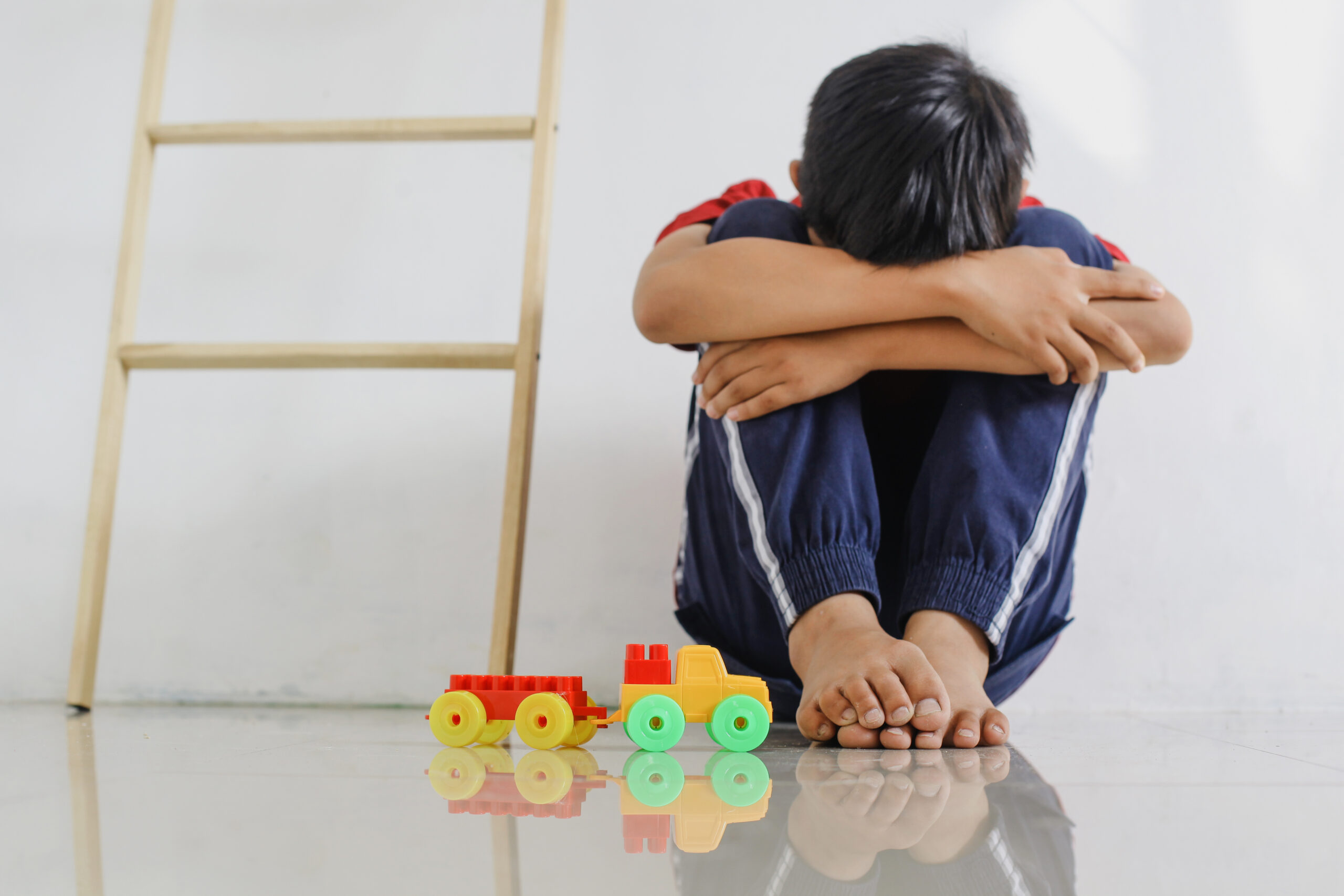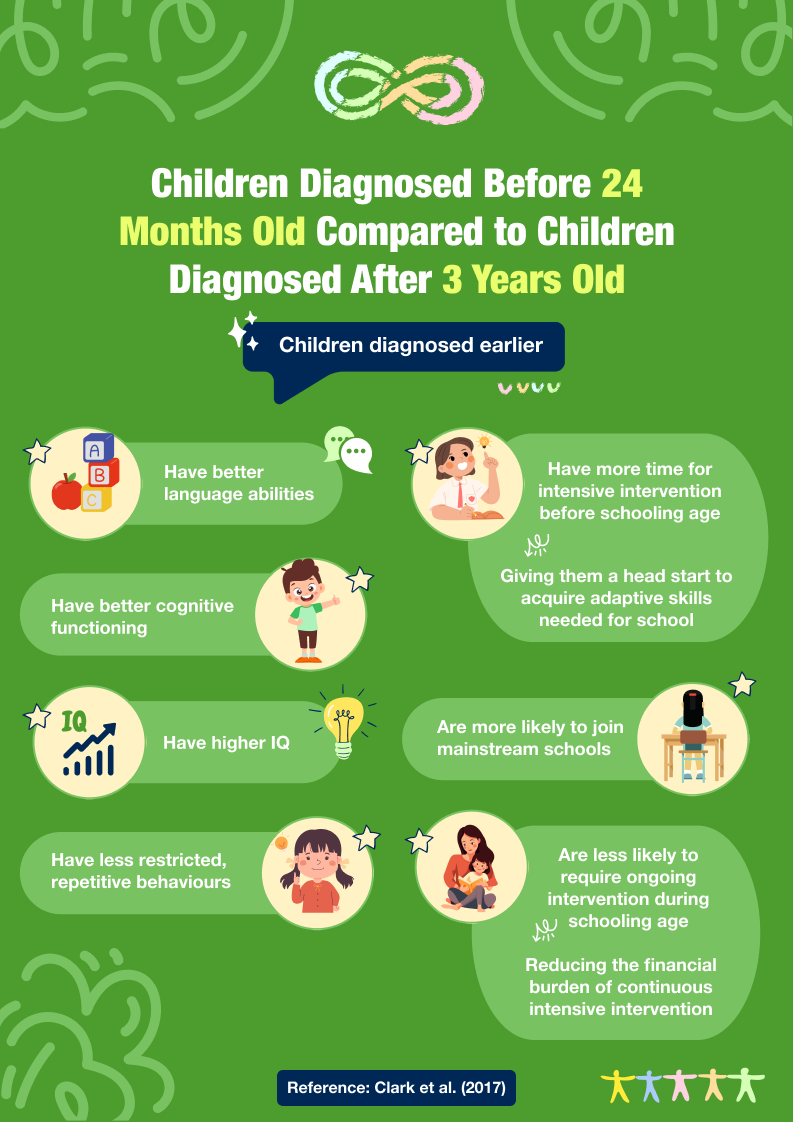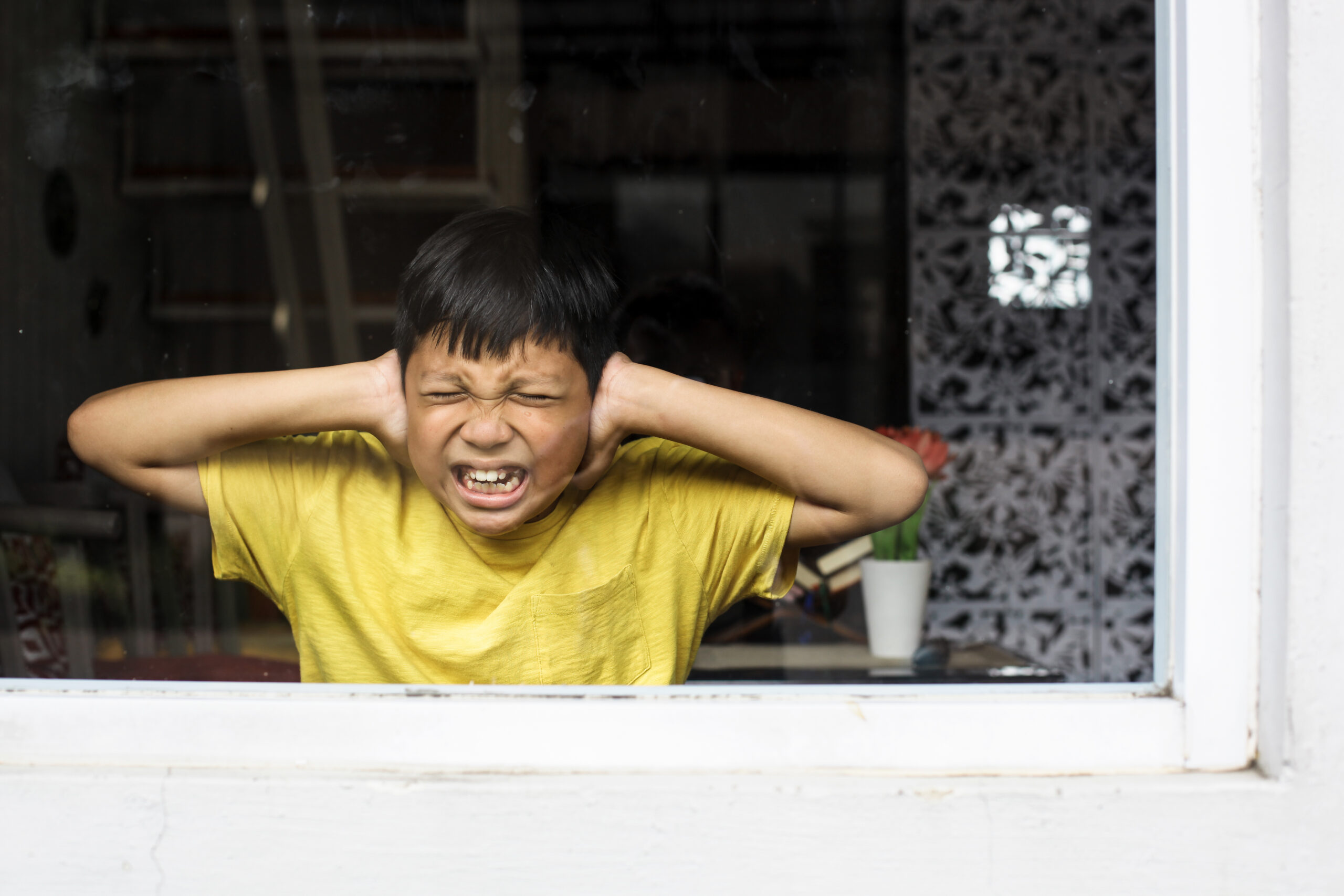Autism Spectrum Disorder (ASD) is classified in the DSM-5 as having (1) difficulties with social communication and social interaction and (2) restricted, repetitive behaviour, interests or activity including hyper- or hypo-sensitivity towards sensory elements like temperature, pain, light, and sound. These features mean that individuals with ASD experience the world differently from most others, and as a result, are often treated differently – unfortunately, usually adversely. Most of us like to think that we are accepting of the ASD community. According to a 2017 UNICEF study, 70.9% of Malaysians thought that children with disabilities were treated well. However, perspectives from parents of children with ASD reveal otherwise.
Parental perspectives on caring for a child with autism spectrum disorder – the downside.
- Experienced and internalised stigma.
Upon autism diagnosis, parents often feel disappointment, grief, denial, and embarrassment at the reality that their child is not ‘normal’ and will not ‘be like other kids’. This internalised stigma often leads to families hiding children with ASD from society as they believe they will be judged harshly. Stigma also results in rejection of the autism diagnosis, preventing autistic children from receiving therapy or government aid such as the OKU card.
- Self-blame and shame.
Due to the collectivist nature of Malaysian society, parents often feel judged and criticised about their parenting abilities. Certain behavioural characteristics of autism such as stimming (repetitive behaviours) and tantrums as a response to heightened sensitivity may come across as ‘misbehaviour’, resulting in parental shame. Cultural beliefs like karma and the outdated notion that poor parenting and child-rearing abilities are the cause of autism further fuel self-blame.
- Hostility from others.
Autistic children are stared at in public and are often victims of rude remarks, ridicule, and ostracization. Only 16.3% of survey respondents were comfortable with children with neurodevelopmental disorders being in school. In some instances, this hostility is transferred to the parents for being unable to ‘control’ their child.
Parent: “We brought her to a ballet class but…everybody kept looking…we didn’t feel nice, like we were disturbing them. A bit…paiseh (feeling of embarrassment). We didn’t bring her back. But she was so happy so we kept looking.”
[Teo & Lau, 2018, p.38]

- Social isolation.
The combination of hostility and shame often leads to parents hiding the fact that their child has ASD from family and friends. Caring for an autistic child is also time consuming, leaving little ‘me-time’ for parents. As such, parents tend to feel alone and socially isolated.
- Lack of support.
A study by Yaacob et al. (2021) revealed that about one third of parents did not receive support from family members, including spouses. There is also a dire need for financial support, and support from healthcare providers in being more accommodating towards individuals with ASD as well as in making autism screenings and early interventions more accessible.
Parent: “I am tired. With an unhelpful husband, who tends just to ignore things. I have to do everything on my own.”
[Yaacob et al., 2021, p.7]
There is no cure for autism. Nor should there be.
Autism spectrum disorder isn’t a disease or a deficit, it is a neurological variation in how some individuals’ brains work – not less, just different. However, the world around us is built to suit neurotypicals, and there is (unfortunately) a long way to go before society starts making changes to completely accommodate individuals with ASD. That’s why early detection and intervention for autism is a parent’s best bet for integrating their child into society and equipping them with tools that will allow them to have some semblance of independence in the future.
Early vs late autism diagnosis and intervention

Barriers against early autism detection
Stigma
Negative preconceptions of parents towards autism often leads to parents being in denial that their child may be autistic. As such, they are unwilling to get their child screened, which results in the child not receiving a correct diagnosis or appropriate intervention for autism.
Cultural beliefs
Parents who believe that their child’s symptoms can be treated by religious methods, traditional medicine and/or vitamins are less likely to get their child screened for autism. Moreover, in some rural areas, autism symptoms like speech delay may be considered normal.
Lack of education
Lack of awareness on what autism spectrum disorder is and on the available intervention methods can result in parents feeling like there is ‘no hope’ and that their child is a ‘lost cause’. This mentality subverts any determination parents may have in getting a formal diagnosis and appropriate autism intervention for their child.
Lack of parent-child quality time
Increased ‘iPad time’ means that parents spend less quality time with their child. Thus, they are less likely to detect signs like communication difficulties (be verbal or via gestures), lack of eye-contact and unusual, repetitive play or behaviour.
Ineffectiveness and reluctance of healthcare professionals in diagnosing autism.
Healthcare professionals may lack adequate training to correctly diagnose and treat autism. They may also be reluctant to label a child as autistic, resulting in incorrect diagnoses like social-introversion, speech and/or hearing impairment. In rural areas, a bias exists among healthcare professionals such that autistic symptoms are attributed to poor upbringing and lack of education, rather than due to having ASD.
Universal screening for autism – a proposed solution.
“Universal screenings for autism are mandatory screenings that can be done routinely locally by healthcare workers for all toddlers at 9 months, 18 months, and 24 or 30 months respectively”. – as recommended by the American Psychological Association, 2020
This would mean that all children would have to get screened at certain points, regardless of whether anyone suspects the child of having autism – similar to how certain vaccinations are done. While this may increase parental anxiety associated with awaiting screening results, the benefits far outweigh the drawbacks.

Stigma associated with autism screenings would be significantly reduced as all children would go through the screening routinely. Universal screening would also facilitate early detection, early intervention, and improved treatment outcomes as barriers like lack of parental and clinician awareness on early signs of ASD. Furthermore, these screenings would help concerned parents initiate conversations with physicians regarding any developmental delays in their child. Results from these screenings would also increase clinician awareness regarding ASD symptoms and provide useful data on how ASD symptoms may be changing over time, especially with the exponential use of screen time in toddlers.

In the meantime, …
Parents of children with ASD may feel like a lot of things are out of their control – and they wouldn’t be wrong. The exception to this being how they react and feel about their child’s autism diagnosis. Research has found that parents who are accepting of the fact that their child has ASD and who don’t feel stigmatised are far less likely to have their quality of life and mental wellbeing adversely affected. Healthcare workers also play a pivotal part in continuing to educate themselves on ASD symptoms, and in supporting parents through screenings and interventions by being more sensitive and empathetic towards what both parents and children are going through. It is also worth mentioning that autistic children and their families can undeniably benefit from a lot less judgement and a lot more kindness and understanding from the community.
My child has autism/I think my child has autism. Where do I go from here?
Screenings, Diagnosis, Early Intervention Programs & Intensive Interventions
Speech Therapy & Occupational Therapy
References:
- A push for universal screening. (2020, July 1). Apa.org. https://www.apa.org/monitor/2020/07/autism-screening
- Chu, S. Y., Park, H., Lee, J., Shaharuddin, K. K. binti, & Gan, C. H. (2020). Self‐stigma and its associations with stress and quality of life among Malaysian parents of children with autism. Child: Care, Health and Development, 46(4), 485–494. https://doi.org/10.1111/cch.12771
- Clark, M. L. E., Vinen, Z., Barbaro, J., & Dissanayake, C. (2017). School Age Outcomes of Children Diagnosed Early and Later with Autism Spectrum Disorder. Journal of Autism and Developmental Disorders, 48(1), 92–102. https://doi.org/10.1007/s10803-017-3279-x
- Dawson, G. (2008). Early behavioral intervention, brain plasticity, and the prevention of autism spectrum disorder. Development and Psychopathology, 20(03). https://doi.org/10.1017/s0954579408000370
- Eilenberg, J. S., Kizildag, D., Blakey, A., Cardona, N. D., Oberoi, A., Broder-Fingert, S., Feinberg, E., & Long, K. A. (2022). Implications of Universal Autism Screening: Perspectives from Culturally Diverse Families with False Positive Screens. Academic Pediatrics, 22(2). https://doi.org/10.1016/j.acap.2021.12.025
- Jayanath, S., & Ozonoff, S. (2020). First Parental Concerns and Age at Diagnosis of Autism Spectrum Disorder: A Retrospective Review from Malaysia. Malaysian Journal of Medical Sciences, 27(5), 78–89. https://doi.org/10.21315/mjms2020.27.5.8
- Latif, M. H. A., Ismail, W. S. W., Manaf, M. R. A., & Taib, N. I. A. (2023). Factors Influencing Despair, Self-blame, and Acceptance Among Parents of Children with Autism Spectrum Disorder (ASD): A Malaysian Perspective. Journal of Autism and Developmental Disorders. https://doi.org/10.1007/s10803-023-06155-8
- Mandell, D. S., & Novak, M. (2005). The role of culture in families’ treatment decisions for children with autism spectrum disorders. Mental Retardation and Developmental Disabilities Research Reviews, 11(2), 110–115. https://doi.org/10.1002/mrdd.20061
- McCarty, P., & Frye, R. E. (2020). Early Detection and Diagnosis of Autism Spectrum Disorder: Why Is It So Difficult? Seminars in Pediatric Neurology, 35, 100831. https://doi.org/10.1016/j.spen.2020.100831
- Moore, K., & Bedford, J. (2017). Childhood disability in Malaysia: A Study of Knowledge, Attitudes and Practices (pp. 1–138). United Nations Children’s Fund (UNICEF) Malaysia. https://www.unicef.org/malaysia/reports/childhood-disability-malaysia
- Pierce, K., Courchesne, E., & Bacon, E. (2016). To Screen or Not to Screen Universally for Autism is not the Question: Why the Task Force Got It Wrong. The Journal of Pediatrics, 176, 182–194. https://doi.org/10.1016/j.jpeds.2016.06.004
- Salleh, N. S., Abdullah, K. L., Yoong, T. L., Jayanath, S., & Husain, M. (2020). Parents’ experiences of affiliate stigma when caring for a child with autism spectrum disorder (ASD): A meta-synthesis of qualitative studies. Journal of Pediatric Nursing, 55, 174–183. https://doi.org/10.1016/j.pedn.2020.09.002
- Salleh, N. S., Tang, L. Y., Jayanath, S., & Lim Abdullah, K. (2022). An Explorative Study of Affiliate Stigma, Resilience, and Quality of Life Among Parents of Children with Autism Spectrum Disorder (ASD). Journal of Multidisciplinary Healthcare, Volume 15, 2053–2066. https://doi.org/10.2147/jmdh.s376869
- Teo, J. X., & Lau, B. T. (2018). Parental Perceptions, Attitudes and Involvement in Interventions for Autism Spectrum Disorders in Sarawak, Malaysia. Disability, CBR & Inclusive Development, 29(1), 26–46. https://doi.org/10.5463/dcid.v29i1.664
- Yaacob, W. N. W., Yaacob, L. H., Muhamad, R., & Zulkifli, M. M. (2021). Behind the Scenes of Parents Nurturing a Child with Autism: A Qualitative Study in Malaysia. International Journal of Environmental Research and Public Health, 18(16), 8532. https://doi.org/10.3390/ijerph18168532

